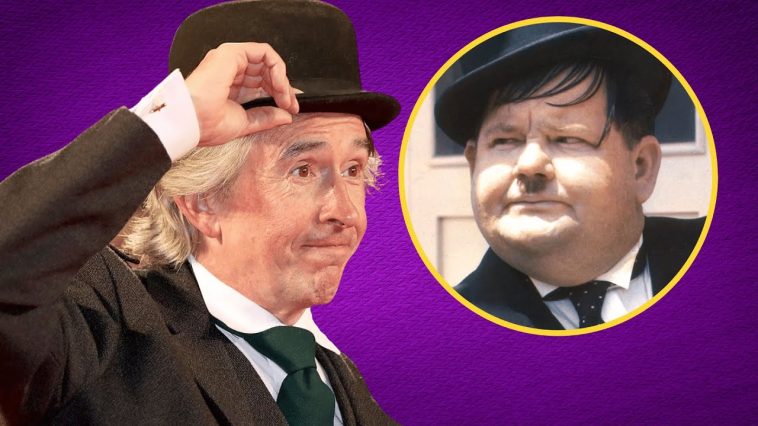Laurel and Hardy, the iconic comedic duo known for their slapstick humor and impeccable timing. He reigned supreme in the world of entertainment from the silent film era into the age of talkies. Comprising the thin, British-born Stan Laurel and his rotund American counterpart. Oliver Hardy, their genuine chemistry both on and off-screen made them one of the most beloved pairs in cinematic history. In a testament to their profound personal bond, when Hardy passed away in 1957, Laurel chose not to attend his partner’s funeral. In this video, we’ll explore their careers and relationships, and talk about the reasons why Laurel didn’t go. Join Facts Verse, as we present: Why Stan Laurel Didn’t Go to Oliver Hardy’s Funeral
The Duo’s Origins
Laurel and Hardy’s early years as a comedic duo marked a formative period in their long and illustrious career. Both had been involved in the entertainment industry separately. Their collaboration turned out to be serendipitous. Their legacy as one of the most beloved comedy teams in film history. Both Stan Laurel and Oliver Hardy were contracted at Hal Roach Studios in the mid-1920s. The studio specialized in comedy and was instrumental in the early days of many comedy greats. They appeared together for the first time in “The Lucky Dog” in 1921, they weren’t officially a team yet. It isn’t until they are both at Hal Roach Studios that their potential as a duo begins to be realized.
The duo’s formation credits to director Leo McCarey. They saw the potential in pairing the thin, British, and naive Stan Laurel with the rotund. American, and pompous Oliver Hardy. Their first official film as a comedic pair was “Putting Pants on Philip” in 1927. This short silent film set the stage for the comedic dynamics the duo would explore throughout their career. From 1927 to 1929, Laurel and Hardy made a series of silent comedy that established their personas and comedic style. Films like “Do Detectives Think?”, “The Battle of the Century” (famous for its epic pie fight), and “Big Business” were some of the standout silent films from this period.
From Silent Cinema to Sound Films
The late 1920s marked the film industry’s shift from silent cinema to sound films, or “talkies.” While many silent film stars found it challenging to adapt, Laurel and Hardy transitioned smoothly. Their first sound film, “Unaccustomed As We Are” in 1929, demonstrated their aptitude for verbal comedy. The iconic “The Laurel-Hardy Murder Case” and “Another Fine Mess” soon followed, cementing their reputation in the talkie era.
The early years allowed the duo to hone their now-iconic personas. Stan played the role of a childlike, well-meaning, yet bumbling fool, while Ollie was the overconfident, often frustrated “straight man.” Their repeated line, “Well, here’s another nice mess you’ve gotten me into!” became one of their most famous catchphrases. Even in these early years, it was evident that their comedy had universal appeal. Their films began to gain international attention, leading to their global stardom in the subsequent decades.
Throughout their early collaborations, the bond between Laurel and Hardy, both on-screen and off, was undeniable. Their genuine friendship and mutual respect formed the foundation of their comedy, making their early films resonate with authenticity and charm. These early years laid the groundwork for the countless classics the duo would produce in the following decades.
Career Highlights
Laurel and Hardy are one of the most iconic comedy duos in the history of film. Their career spanned several decades, with notable achievements in both the silent film era and the “talkies” (sound films). Here are some of the key highlights of their illustrious career. Silent Film Era Classics: “Big Business” (1929): Known for its escalating and legendary pie fight. “Liberty” (1929): Remembered for the high-rise antics and the comedic tension created as the duo attempted to escape a skyscraper construction site. Transition to Talkies: Laurel and Hardy’s move to sound films was not only seamless but also allowed them to further refine their comedy. “Unaccustomed As We Are” in 1929 was their first sound short.
“The Laurel-Hardy Murder Case” (1930): This film demonstrated their ability to mix comedy with mystery. “Another Fine Mess” (1930): This movie showcased their iconic catchphrase and their knack for comedic dialogue. They had many successful feature-length films including: “Pardon Us” (1931): Their first full-length feature, where the duo ends up in prison. “Sons of the Desert” (1933): Often considered one of their best films, it involves them trying to deceive their wives to attend a lodge convention. “Way Out West” (1937): Features them delivering the deed to a gold mine, with the iconic dance scene to the song “At the Ball, That’s All.” “Block-Heads” (1938): A continuation of their soldier personas from their earlier film “Pack Up Your Troubles” (1932).
French Foreign Legion
“The Flying Deuces” (1939): Where the pair joins the French Foreign Legion. In the 1940s and 1950s, the duo embarked on theatrical tours in the UK and other parts of Europe. These were incredibly successful and showcased their ability to connect with live audiences. By the late 1930s, they left Hal Roach Studios, which had been instrumental in their success. Afterward, they worked with various studios, though some fans and critics believe their best work was behind them by this point.
Known as their final film, “Atoll K” (1951) was a troubled production due to various issues, including Laurel’s health. Their legacy cement with numerous accolades. In 1961, they were awarded a star on the Hollywood Walk of Fame. And, in recognition of their contribution to motion pictures, they received an honorary Oscar in 1961, awarded to Stan Laurel. Their enduring friendship, on and off the screen, their ability to make audiences laugh during the difficult years of the Great Depression, and their timeless comedy that continues to resonate with audiences worldwide all constitute a significant part of their legacy.
Oliver’s Later Years and Illness
After their last film together, “Atoll K” (1951), the duo didn’t make any more movies. They did plan some projects, but none came to fruition. Oliver also made no further film or TV appearances after this. The pair had previously enjoyed successful theater tours in the UK and other parts of Europe. However, with advancing age and health concerns, their touring significantly decreased in the 1950s. Hardy continued to suffer from Health Issues. Throughout his life, Hardy’s weight fluctuated. Being overweight contributed to various health challenges.
In 1954, Hardy suffered a significant stroke, which was a turning point in his health and career. It affected his mobility and speech, making public appearances or further work nearly impossible. After the stroke, his health continued to deteriorate. He lost a significant amount of weight, which was alarming to those who remembered him for his stout figure. Oliver Hardy’s health declined rapidly after his strokes. In August 1957, he suffered two massive strokes in rapid succession. Oliver Hardy passed away on August 7, 1957, at the age of 65. His death marked the end of an era and left fans worldwide mourning the loss of one half of the iconic comedic duo.
Oliver Hardy’s Death
When Oliver Hardy passed away Stan Laurel did not attend his funeral. This decision puzzled many fans and raised questions about the nature of their relationship. However, the reasons behind Stan Laurel’s absence at Oliver Hardy’s funeral are grounded in emotion and respect rather than any form of animosity. The primary reason he didn’t go, was that he was so distraught at the death of his friend, that he fell ill. Too ill, in fact, to attend Hardy’s funeral. The bond they shared was more than just that of co-stars; they were close friends. Stan’s emotional state at the time of Hardy’s death was such that he felt he couldn’t bear to attend the funeral, a sentiment that many people can empathize with when they lose someone close to them.
Genuine Emotion and Respect
Stan Laurel was well-aware of the media’s penchant for creating stories and narratives, often at the expense of genuine emotion and respect. By staying away from the funeral, he avoided drawing attention to himself and inadvertently overshadowing the purpose of the occasion, which was to commemorate and celebrate Oliver Hardy’s life. Stan was quoted as saying, “Babe (Oliver’s nickname) would understand.” By this, he implied that Hardy would have understood and respected his decision, knowing the depth of their bond and the pain that his passing would have inflicted on Laurel.
While Stan Laurel’s absence at Oliver Hardy’s funeral may have been puzzling to some, it is essential to remember that grief is a deeply personal process, and everyone handles it differently. Rather than judging his decision, it’s more meaningful to reflect on the incredible legacy that the duo left behind and the joy they brought to countless fans worldwide. In fact, Stan wrote a letter that he released to the public, shortly after Oliver’s death. In it, he said, “I feel lost without him after 30 odd years of close friendship & happy association.” His grief was so strong, and he was so lost without his comedic partner and friend, that he promised he would no longer perform.
Their Legacy
Laurel and Hardy’s legacy in the world of comedy is both vast and enduring. Their dynamic – one playing the straight man, and the other the buffoon—has since become a staple format in comedic pairings. Their roles, where Laurel was often the naive, innocent troublemaker and Hardy the exasperated, suffering recipient of their combined misfortunes, provided a template. Duos like Abbott and Costello, Martin and Lewis, and more recently, comedic pairings in television shows and films, owe a nod to Laurel and Hardy’s foundational dynamic. One of their most significant contributions was seamlessly bridging the gap between the silent film era and the talkies.
They showcased that humor could evolve with technology, but its core remains rooted in genuine human emotion and connection. This adaptability serves as a lesson for comedians transitioning between different eras and platforms. Laurel and Hardy’s comedy was not confined by language or culture. Their humor was largely visual and situational, which made it accessible and relatable to global audiences. This universality is a testament to the timeless nature of their work and offers a model for creating content that resonates across boundaries.
Now it’s time to hear from you. Were you surprised to find out that Laurel didn’t attend Hardy’s funeral? Let us know in the comments section below!



